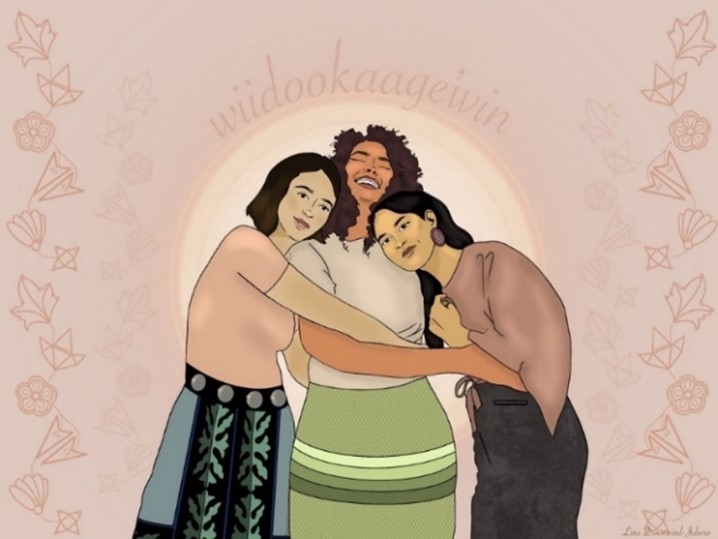Home > ASME Articles > Wiidookaage’win: Beta-Test of a Facebook Group Intervention for Native Women to Support Recovery from OUD

What’s the Question?
American Indian/Alaska Native (AI/AN) communities have been hit hard by the opioid overdose epidemic. Data from 2021 in the state of Minnesota found that AI/AN individuals were 10 times more likely to die from a drug overdose than white individuals, with these inequities linked to a range of social determinants of health, including intergenerational trauma, systemic racism, and structural barriers to accessing healthcare.
The majority of treatment facilities serving AI/AN populations do not offer medications for opioid use disorder (MOUD) like methadone, buprenorphine, and naltrexone, the standard of care for this condition. In addition to structural barriers, there are a number of cultural barriers to MOUD that may also contribute to the lack of availability in AI/AN communities. Would a culturally centered, holistic, and community-engaged approach to MOUD care help bridge that gap?
How Was This Study Conducted?
The Wiidookaage’win study, a NIDA Clinical Trials Network protocol (CTN-0123), used the community-based participatory research (CBPR) approach to ensure that AI/AN storytelling and wisdom were incorporated into the study methodology and intervention to maximize cultural fit, acceptability, and accessibility.
Working with the Minnesota Indian Women’s Resource Center (MIWRC), the researchers on this study team developed a Facebook-delivered group intervention for AI/AN women in recovery from OUD and currently taking MOUD.
The intervention involved group discussions led by two moderators who were provided with prompts like “What do you already do to practice self-care?” or “Which Ojibwe value relates most to your recovery journey?” The Facebook group also included a content library with exercises, personal stories of OUD recovery from AI/AN women, poetry from AI/AN women, and more.
Demographics of Participants
The study included 10 participants, all of whom identified as AI/AN women, resided in Minnesota, met criteria for OUD based on the DSM-5 Checklist, and were currently on MOUD.
What Did Researchers Find Out?
This 30-day beta test of the intervention had very positive results, suggesting the full intervention, which is intended to last 90 days, could be extremely helpful for participants. Ninety percent of participants commented or reacted at least once, which is an extremely encouraging level of engagement, and the median level of engagement was 33 overall (viewed, reacted, posted, commented, or voted).
Additionally, of the 9 participants who completed the post-intervention survey, all reported they had maintained their MOUD use and none had returned to illicit opioid use. All 9 also reported high satisfaction with the intervention and expressed an interest in being a moderator in a future iteration of the program.
What Are the Implications for the Workforce?
Use of a Facebook group to both recruit and implement a recovery support intervention for an AI/AN community was both effective and engaging for participants. Facebook is a free platform with a low technological barrier for many users, making it an accessible and potentially useful tool for recovery support for many populations. This was a pilot study and more research needs to be done, but the positive results from this beta-test of the Wiidookaage’win study and the high satisfaction and engagement rates from the participants themselves suggest this tool may be worth looking at for organizations seeking ways to support recovery in culturally-tailored and participatory ways.